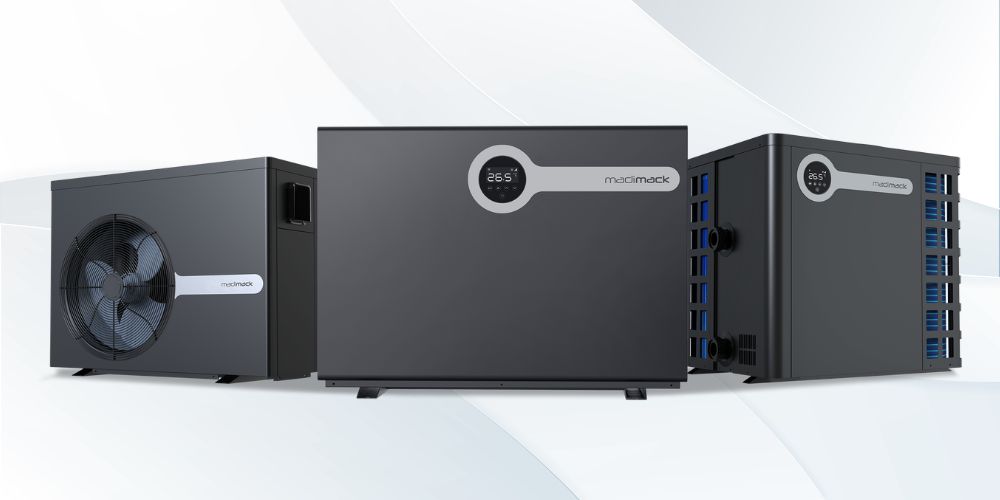Are you considering heating your pool? Whether you want to swim longer or simply relax in warm water, it's important to know the costs of running a pool heat pump. With various heating methods available, it's crucial to weigh the benefits and expenses to make an informed decision. In this guide, we'll delve into the world of pool heating, focusing on heat pump pool heaters, their operating costs, and factors influencing them.
Understanding Pool Heating Methods
Before we discuss heat pump pool heaters, let's quickly look at other pool heating options:
- Gas Heaters: These heaters use natural gas or propane to generate heat, making them a quick and efficient option. However, they can be expensive to operate, especially with fluctuating gas prices.
- Electric Resistance Heaters: Similar to electric hot water heaters, these devices use electricity to heat the water. While they are relatively easy to install, they tend to have high operating costs due to electricity consumption.
- Solar Heaters: Solar panels capture sunlight, convert it into heat, and then transfer the heat to the pool water. Solar panels capture sunlight, convert it into heat, and then transfer it to the pool water.
- Heat Pump Pool Heaters: These devices extract heat from the air and transfer it to the pool water, making them an energy-efficient option. While they may have higher upfront costs compared to other heaters, they offer significant savings in the long run.
How Do Heat Pump Pool Heaters Work?
Heat pump pool heaters operate on the same principles as air conditioners but in reverse. Here's a simplified explanation of how they work:
- Heat Absorption: The heat pump extracts warm air from the surrounding environment using a fan.
- Heat Exchange: The heat pump transfers the extracted heat to a refrigerant through a series of coils.
- Compression: Compression raises the temperature of the refrigerant significantly.
- Heat Transfer: The hot refrigerant releases its heat into the pool water through a heat exchanger.
- Cycling: The process continues cycling on and off until it reaches the desired water temperature and maintains it.
Factors Influencing Operating Costs
Several factors can influence the operating costs of a heat pump pool heater:
- Water Temperature: The desired temperature of the pool water affects how often the heater needs to run and for how long.
- Air Temperature: Higher air temperatures improve heat pump efficiency, while lower temperatures can decrease its effectiveness.
- Insulation and Cover: Using a pool cover when the pool isn't being used traps heat, reducing the heater's workload and saving on costs.
- Size and Efficiency of the Heater: Using a pool cover when the pool is not in use traps heat, reducing the need for the heater and saving money.
- Electricity Costs: The cost of electricity in your area directly impacts the overall operating expenses of the heat pump.
Calculating Operating Costs
To estimate the operating costs of a heat pump pool heater, you'll need to consider the following:
- Energy Efficiency: Look for the heater's COP (Coefficient of Performance) rating, which indicates its energy efficiency. Higher COP ratings mean lower operating costs.
- Electricity Rate: Determine the cost per kilowatt-hour (kWh) of electricity in your area.
- Pool Size: Calculate the volume of your pool in gallons or cubic meters.
- Heating Duration: Estimate the number of hours per day the heater will run and the number of days per year you'll use it.
By multiplying the heater's energy consumption (in kWh) by the electricity rate, you can calculate the hourly operating cost. Multiply this by the daily hours the heater runs, and then by the days per year to find the yearly operating cost.
Average Cost Comparison
While the initial investment in a heat pump pool heater may be higher compared to other heating methods, its lower operating costs can result in significant savings over time. On average, heat pump pool heaters cost between $1,500 and $5,000 to purchase and install, depending on factors such as size and efficiency. However, their annual operating costs are typically lower than those of gas or electric resistance heaters.
Tips for Reducing Heating Costs
Here are some additional tips to help reduce the operating costs of your pool heat pump:
- Use a Pool Cover: Covering your pool when it's not in use prevents heat loss through evaporation, reducing the workload on the heater.
- Optimize Settings: Set your heater to maintain a comfortable yet energy-efficient temperature, and consider using a timer to control its operation.
- Maintain Efficiency: Regularly clean and maintain your heat pump to ensure optimal performance and energy efficiency.
- Consider Solar: Supplementing your heat pump with solar heating can further reduce operating costs, especially in sunny climates.
Conclusion
When it comes to heating your pool, a heat pump pool heater offers a cost-effective and energy-efficient solution. By understanding how these heaters work, estimating their operating costs, and implementing energy-saving practices, you can enjoy a comfortably heated pool without breaking the bank.
Consider factors such as water and air temperature, insulation, and electricity costs to make an informed decision that suits your budget and preferences. With the right equipment and maintenance, you can extend your swimming season and make the most of your investment in a heated pool.
Visit our website for more heat pump products: https://madimack.com/ca

